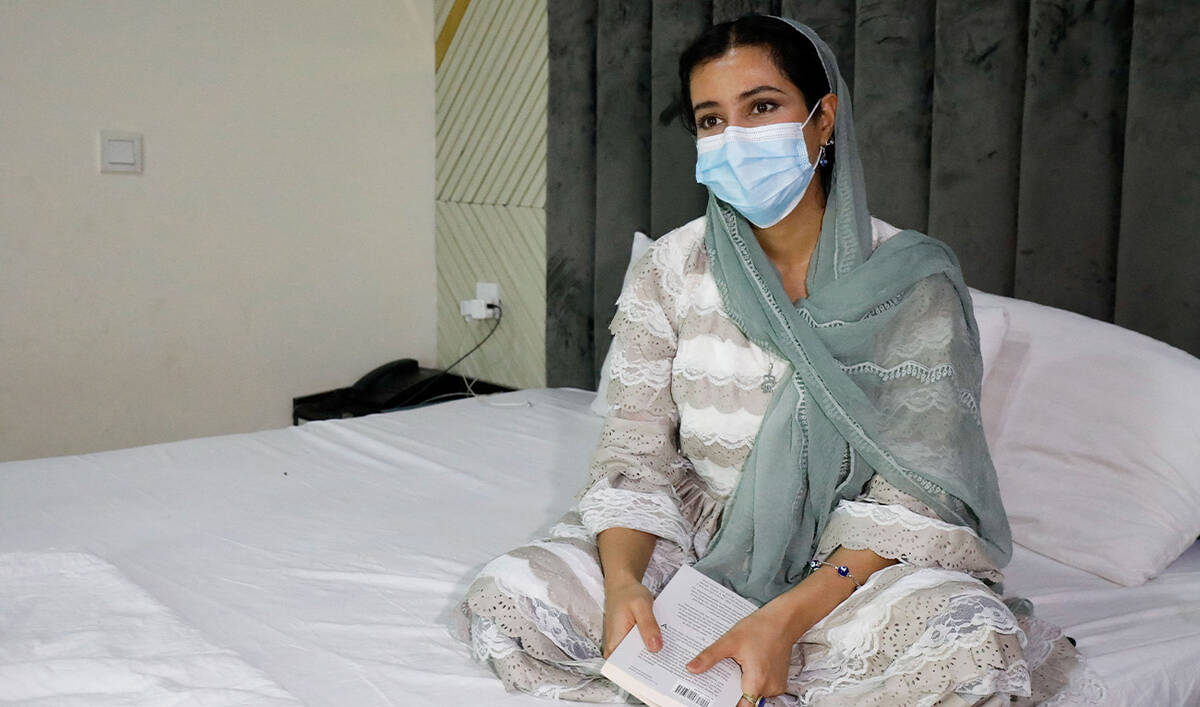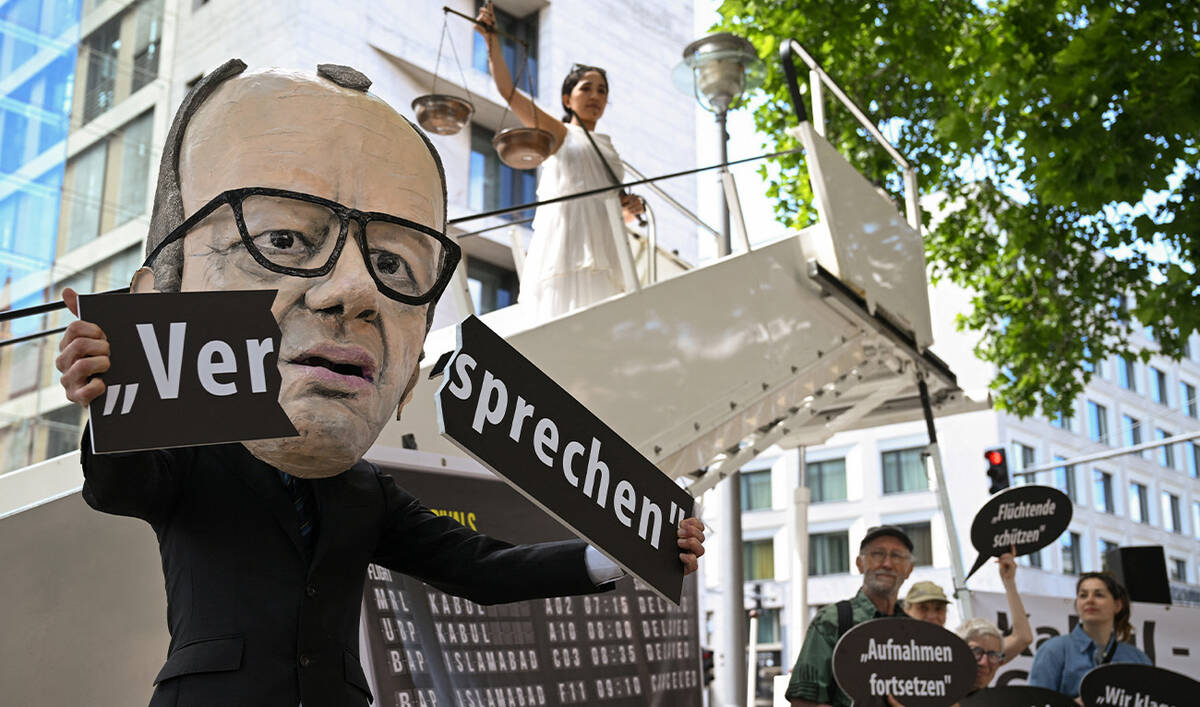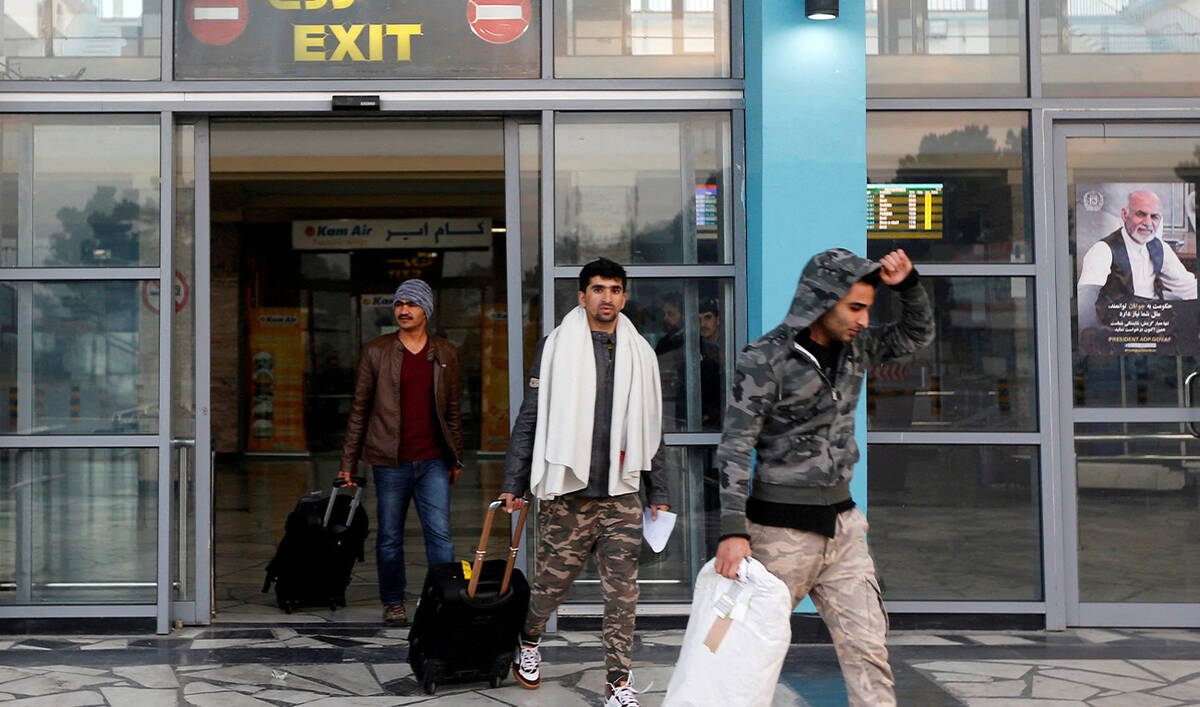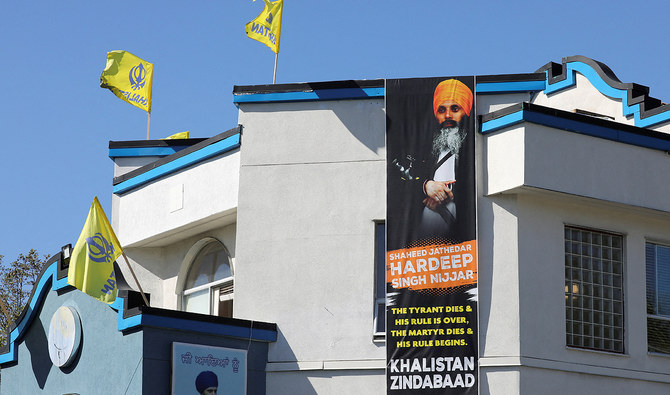ISLAMABAD: Responding to Canadian accusations that India may have been involved in the killing of a Sikh separatist leader in suburban Vancouver, Pakistan said on Wednesday the charges called into question New Delhi’s reliability as a credible international partner and showed that its “network of extra-territorial killings” had gone global.
On Monday, Canadian Prime Minister Justin Trudeau said there were “credible allegations” of Indian involvement in the slaying of Hardeep Singh Nijjar, a 45-year-old Sikh leader who was killed by masked gunmen in June in Surrey, outside Vancouver. For years, India has said Nijjar, a Canadian citizen born in India, has links to terrorism, an allegation Nijjar denied.
Prime Minister Narendra Modi’s government has rejected outright Canada’s suspicions that New Delhi’s agents had links to the murder.
“India’s assassination of a Canadian national on Canadian soil is a clear violation of international law and the UN principle of state sovereignty,” the foreign ministry for Pakistan, India’s arch-rival and neighbor, said. “It is also a reckless and irresponsible act that calls into question India’s reliability as a credible international partner and its claims for enhanced global responsibilities.”
The foreign office said the news of Indian involvement in Nijjar’s killing showed that “India’s network of extra-territorial killings has now gone global.”
“For decades, Indian intelligence agency RAW has been actively involved in abductions and assassinations in South Asia,” the foreign office said, saying Pakistan had itself been a target of espionage and target killings by RAW.
In December 2022, Pakistan released a dossier accusing Indian intelligence of being behind an attack in Lahore in June 2021. In 2016, Pakistan arrested former Indian naval officer Kulbhushan Jadhav and convicted him of planning espionage and sabotage and sentenced him to death. Jadhav is still in a Pakistani prison and India says he is innocent.
Speaking to journalists in New York on Tuesday on the sidelines of the 78th session of the United Nations General Assembly (UNGA), Pakistani Foreign Secretary said Islamabad was “not surprised” by Canada’s allegations against the Indian government.
“We have captured one of [India’s] serving naval intelligence officers [Jadhav] on our soil, who is in our custody at the moment, and he has admitted that he had arrived here to create instability and all types of mischief,” Qazi said.
“The situation is developing, so let’s see, but according to our experience, we are not surprised.”
‘Reckless and irresponsible’: Pakistan hits out at India over link to killing of Sikh separatist leader
https://arab.news/wjdhh
‘Reckless and irresponsible’: Pakistan hits out at India over link to killing of Sikh separatist leader

- Canadian PM Trudeau has said there was “credible allegations” of Indian involvement in slaying of Hardeep Singh Nijjar
- Pakistani foreign office says Pakistan had for years been a target of espionage and target killings by Indian intelligence
Afghan refugees stuck in Pakistan as Germany halts entry program

- Berlin halts at-risk Afghan resettlement as political shift curbs migration pathways
- Over 2,400 Afghans await entry as suspended admission program under review
BERLIN/ISLAMABAD, July 3 : In a cramped guesthouse in Pakistan’s capital, 25-year-old Kimia spends her days sketching women — dancing, playing, resisting — in a notebook that holds what’s left of her hopes.
A visual artist and women’s rights advocate, she fled Afghanistan in 2024 after being accepted on to a German humanitarian admission program aimed at Afghans considered at risk under the Taliban.
A year later, Kimia is stuck in limbo.
Thousands of kilometers away in Germany, an election in February where migration dominated public debate and a change of government in May resulted in the gradual suspension of the program.
Now the new center-right coalition intends to close it.
The situation echoes that of nearly 1,660 Afghans cleared to settle in the United States, but who then found themselves in limbo in January after US President Donald Trump took office and suspended refugee programs.
Kimia’s interview at the German embassy which she hoped would result in a flight to the country and the right to live there, was abruptly canceled in April.
Meanwhile, Germany pays for her room, meals and medical care in Islamabad.
“All my life comes down to this interview,” she told Reuters. She gave only her artist name for fear of reprisal.
“We just want to find a place that is calm and safe,” she said of herself and the other women at the guesthouse.

The admission program began in October 2022, intending to bring up to 1,000 Afghans per month to Germany who were deemed at risk because of their work in human rights, justice, politics or education, or due to their gender, religion or sexual orientation.
However, fewer than 1,600 arrived in over two years due to holdups and the cancelation of flights.
Today, around 2,400 Afghans are waiting to travel to Germany, the German foreign ministry said. Whether they will is unclear. NGOs say 17,000 more are in the early stages of selection and application under the now dormant scheme.
The foreign ministry said entry to Germany through the program was suspended pending a government review, and the government will continue to care for and house those already in the program.
It did not answer Reuters’ questions on the number of canceled interviews, or how long the suspension would last.
Reuters spoke with eight Afghans living in Pakistan and Germany, migration lawyers and advocacy groups, who described the fate of the program as part of a broader curb on Afghan asylum claims in Germany and an assumption that Sunni men in particular are not at risk under the Taliban.
The German government says there is no specific policy of reducing the number of Afghan migrants. However, approval rates for Afghan asylum applicants dropped to 52 percent in early 2025, down from 74 percent in 2024, according to the Federal Migration Office (BAMF).
POLITICAL SHIFT
Kabul fell to the Taliban in August 2021. Since May 2021 Germany has admitted about 36,500 vulnerable Afghans by various pathways including former local staff, the government said.
Thorsten Frei, chief of staff to Germany’s new chancellor Friedrich Merz, said humanitarian migration has now reached levels that “exceed the integration capacity of society.”
“As long as we have irregular and illegal migration to Germany, we simply cannot implement voluntary admission programs.”

The interior ministry said programs like the one for Afghans will be phased out and they are reviewing how to do so.
|Several Afghans are suing the government over the suspension. Matthias Lehnert, a lawyer representing them, said Germany could not simply suspend their admissions without certain conditions such as the person no longer being at risk.
Since former chancellor Angela Merkel opened Germany’s borders in 2015 to over a million refugees, public sentiment has shifted, partly as a result of several deadly attacks by asylum seekers. The far-right Alternative for Germany party (AfD), capitalizing on the anti-migrant sentiment, surged to a historic second-place finish in February’s election.
Afghans Reuters spoke with said they feared they were being unfairly associated with the perpetrators, and this was putting their own lives at risk if they had to return to Afghanistan.
“I’m so sorry about those people who are injured or killed ... but it’s not our fault,” Kimia said.
Afghan Mohammad Mojib Razayee, 30, flew to Germany from Cyprus in March under a European Union voluntary solidarity mechanism, after a year of waiting with 100 other refugees. He said he was at risk after criticizing the Taliban. Two weeks after seeking asylum in Berlin, his application was rejected.
He was shocked at the ruling. BAMF found no special protection needs in his case, a spokesperson said.
“It’s absurd — but not surprising. The decision-making process is simply about luck, good or bad,” said Nicolas Chevreux, a legal adviser with AWO counseling center in Berlin.
Chevreux said he believes Afghan asylum cases have been handled differently since mid-2024, after a mass stabbing at a rally in the city of Mannheim, in which six people were injured and a police officer was killed. An Afghan asylum seeker was charged and is awaiting trial.

‘YOU DON’T LIVE’
Spending most days in her room, surrounded by English and German textbooks, Kimia says returning to Afghanistan is unthinkable. Her art could make her a target.
“If I go back, I can’t follow my dreams — I can’t work, I can’t study. It’s like you just breathe, but you don’t live.”
Under Taliban rule, women are banned from most public life, face harassment by morality police if unaccompanied by a male guardian, and must follow strict dress codes, including face coverings. When security forces raided homes, Kimia said, she would frantically hide her artwork.
The Taliban say they respect women’s rights in accordance with their interpretation of Islamic law and local culture and that they are not targeting former foes.
Hasseina, is a 35-year-old journalist and women’s rights activist from Kabul who fled to Pakistan and was accepted as an applicant on to the German program.
Divorced and under threat from both the Taliban and her ex-husband’s family, who she says have threatened to kill her and take her daughter, she said returning is not an option.
The women are particularly alarmed as Pakistan is intensifying efforts to forcibly return Afghans. The country says its crackdown targets all undocumented foreigners for security reasons. Pakistan’s foreign ministry did not respond to request for comment on how this affects Afghans awaiting German approval.
The German foreign ministry has said it is aware of two families promised admission to Germany who were detained for deportation, and it was working with Pakistan authorities to stop this.
Marina, 25, fled Afghanistan after being separated from her family. Her mother, a human rights lawyer, was able to get to Germany. Marina has been waiting in Pakistan to follow her for nearly two years with her baby.
“My life is stuck, I want to go to Germany, I want to work, I want to contribute. Here I am feeling so useless,” she said.
Pakistan PM Sharif heads to Azerbaijan for ECO summit focused on climate, trade

- Regional leaders gather in Baku to discuss sustainable development, connectivity
- PM Sharif expected to reaffirm Pakistan’s commitment to ECO Vision 2025
ISLAMABAD: Pakistani Prime Minister Shehbaz Sharif will be in Azerbaijan from today, Thursday, to attend the two-day 17th Economic Cooperation Organization (ECO) summit in Baku, where regional leaders will meet to discuss sustainable growth, climate resilience and increased intra-regional trade.
The theme of this year’s summit is “New ECO Vision for a Sustainable and Climate Resilient Future.” The ECO is a 10-member regional bloc comprising countries from Central and South Asia, the Caucasus, and the Middle East.
According to a report published in state broadcaster Radio Pakistan, Sharif will lead the Pakistani delegation and “share Pakistan’s perspective on key regional and global challenges.”
The report said he will also “reaffirm Pakistan’s commitment to the ECO Vision 2025 and advocate for enhanced intra-regional trade, transport connectivity, energy cooperation, and sustainable development.”
On the sidelines of the summit, Sharif is scheduled to hold bilateral meetings with other ECO leaders to discuss matters of mutual interest.
This marks Sharif’s second visit to Azerbaijan this year. He last traveled to Baku in May 2025, where he met with Azerbaijani President Ilham Aliyev and discussed deepening bilateral cooperation in energy and trade.
The ECO was established in 1985 by Iran, Turkiye, and Pakistan, and was expanded later to include Afghanistan, Azerbaijan, Kazakhstan, Kyrgyzstan, Tajikistan, Turkmenistan, and Uzbekistan. The organization aims to promote economic, technical, and cultural cooperation among member states.
Hindu pilgrimage begins at Kashmir site where April attack triggered brief war with Pakistan

- Last year, half a million devotees took part in the Amarnath pilgrimage to a cave above the town of Pahalgam
- Pahalgam is site where April 22 attack killed 26 tourists, unleashing brief but intense war with neighboring Pakistan
PAHALGAM, India: Hindus began a vast month-long pilgrimage in contested Indian Kashmir on Thursday, with many of the faithful starting from near the site where a deadly April attack triggered conflict with Pakistan.
Last year, half a million devotees took part in the Amarnath pilgrimage to a sacred ice pillar located in a cave in the forested Himalayan hills above the town of Pahalgam.
Pahalgam is the site where gunmen on April 22 killed 26 mostly Hindu tourists.
New Delhi said the gunmen were backed by Pakistan, claims Islamabad rejected — triggering a series of tit-for-tat diplomatic measures that escalated into a four-day conflict.
It was the worst standoff by the nuclear-armed nations since 1999, with more than 70 people killed in missile, drone and artillery fire on both sides, before a May 10 ceasefire.
But pilgrim Muneshwar Das Shashtri, who traveled from Uttar Pradesh state, told AFP “there is no fear of any kind.”
“Our army is standing guard everywhere. No one can raise a finger toward us,” he said.
India has ramped up security for the event, deploying 45,000 troops with high-tech surveillance tools overseeing the grueling trek to reach the high-altitude cave, dedicated to the Hindu deity of destruction Shiva.
“We have multi-layered and in-depth security arrangements so that we can make the pilgrimage safe and smooth for the devotees,” said VK Birdi, police chief for the Muslim-majority territory.
At Pahalgam, soldiers have turned a tented base camp into a fortress encircled by razor wire.
Troops in newly deployed armored cars, or from gun positions behind sandbags, keep a close watch — efforts boosted by facial recognition cameras.
“High-quality surveillance cameras have been installed at all major points along the route,” said Manoj Sinha, the Indian-appointed top administrator for Jammu and Kashmir.
All pilgrims must be registered and travel in guarded vehicle convoys, until they start out to walk.
Camouflaged bunkers have been erected in the forests along the route, where dozens of makeshift kitchens provide free food.
Electronic radio cards pinpoint their location.
Pilgrims can take several days to reach the cave, perched at 3,900 meters (12,800 feet) high, around 30 kilometers (18 miles) uphill from the last easily motorable track.
“Whatever the attack that was carried out here, I am not afraid. I have come to get a glimpse of baba (the ice formation)” said Ujwal Yadav, 29, from India’s Uttar Pradesh state, undertaking his first pilgrimage to the shrine.
“Such are the security arrangements here that no one can be hurt.”
Sinha has said that “public confidence is returning,” but admits that pilgrim registration had dipped by 10 percent this year.
Once a modest, little-known ritual, attended by only a few thousand mainly local devotees, the pilgrimage has grown since an armed insurgency erupted in 1989.
India’s government has since heavily promoted the annual event, which runs until August 9.
Rebels fighting against India’s control of Kashmir have said the pilgrimage is not a target, but have warned they would act if it was used to assert Hindu dominance.
In 2017, suspected rebels attacked a pilgrim bus, killing 11 people.
The gunmen who carried out the April 22 killings remain at large, despite the manhunt by security forces in Kashmir where India has half a million soldiers permanently deployed.
On June 22, India’s National Investigation Agency said two men had been arrested from the Pahalgam area who they said had “provided food, shelter and logistical support” to the gunmen.
Indian police have issued wanted notices for three of the gunmen, two of whom they said were Pakistani citizens. Pakistani has rejected the claim.
Pakistan PM orders doubling of digital payment targets to boost cashless economy

- Move aims to deepen transparency, widen tax net as mobile app users set to rise from 95-120 million
- Government targets expansion of QR code usage, e-payments and Internet access across the country
ISLAMABAD: Prime Minister Shehbaz Sharif has ordered the doubling of all key digital economy targets, including mobile-based payments, QR code adoption, and overall transaction volumes, as part of Pakistan’s push to accelerate its transition to a cashless economy, his office said on Thursday.
The directive comes as authorities aim to increase mobile payment users from 95 million to 120 million, and QR code-enabled merchants from 0.9 million to 2 million. The total value of digital transactions is expected to rise from Rs7.5 billion ($26.9 million) to Rs12 billion ($43 million), according to figures shared in a meeting chaired by Sharif on Thursday. A statement released after the discussions did not provide a timeline for meeting these targets.
Sharif said the targets were not ambitious enough and must be doubled across the board to match the scale of Pakistan’s digital transformation agenda.
“A digital transaction system is essential for bringing transparency to the economy,” Sharif said. “It is an urgent need of the hour to ease payments between citizens and businesses and raise awareness about the use of digital systems.”
Pakistan, a country of over 240 million people, has a vast informal economy and low tax compliance. The government has long identified digitization as a key tool to improve governance, reduce corruption, and expand the country’s narrow tax base.
Three committees — the Digital Payments Innovation and Adoption Committee, the Digital Public Infrastructure Committee, and the Government Payments Committee — have already been formed to oversee the transition.
At Thursday’s meeting, Sharif directed the bodies to present “workable proposals in collaboration with all stakeholders,” the statement said.
The State Bank of Pakistan is developing strategies to simplify digital transactions for traders, including special incentive packages for small businesses. The government also plans to expand the use of digital mobile apps and improve access to digital public infrastructure.
Sharif was also briefed on new services set to launch soon, including e-stamping, as well as public Wi-Fi expansion across hospitals, schools, parks, government offices and metro lines in Islamabad.
He instructed officials to roll out these facilities across all federal territories, as well as Azad Jammu and Kashmir and Gilgit-Baltistan.
Pakistan issues fresh monsoon flood alert as deaths rises to 64 in over a week

- New rainfall system threatens Pothohar, central and southern Punjab, KP provinces
- NDMA warns of glacial floods, landslides as rivers expected to swell across country
ISLAMABAD: Pakistan’s disaster and weather authorities issued fresh flood warnings on Thursday as new monsoon rains are expected in parts of the Punjab and Khyber Pakhtunkhwa provinces, with the national death toll from rain-related incidents rising to 64 in just over a week.
A weather system is currently active over Chakwal, Talagang, and Mianwali districts and is expected to bring rain, wind and thunderstorms to areas including Khushab, Sargodha, Bhakkar, Dera Ismail Khan and Lakki Marwat in the next two to four hours, the Pakistan Meteorological Department (PMD) said in an advisory on Thursday morning.
“Public is advised to take precautionary measures during the weather activity accordingly,” the PMD said in a statement issued from its Islamabad office.
Separately, the Punjab Disaster Management Authority (PDMA) also warned of a fresh spell of monsoon rains across the province from July 5 to 10, with heavy downpours expected to trigger flash flooding, especially in low-lying and river-adjacent districts.
“The second monsoon spell will begin from July 5 across Punjab,” the PDMA said in an alert, listing expected rains in Rawalpindi, Murree, Attock, Chakwal, Lahore, Faisalabad, Sargodha, Bahawalpur, and D.G. Khan among other districts.
“All relevant departments have been issued preemptive alerts on the instructions of Punjab Chief Minister Maryam Nawaz,” it added.
The warning comes as Pakistan’s National Disaster Management Authority (NDMA) confirmed in a statement on Wednesday that at least 64 people, including 45 children and 31 women, had been killed and over 113 injured in rain-related incidents since June 26.
Khyber Pakhtunkhwa province accounted for 22 deaths, followed by Punjab with 21, Sindh with 15, and Balochistan with five, the NDMA said.
The authority has issued impact-based alerts highlighting the risk of urban flooding, flash floods, landslides and glacial lake outburst floods (GLOFs) across northern regions like Gilgit-Baltistan and KP as well as hill torrents in DG Khan and Rajanpur.
“The National Emergencies Operation Center has issued multiple alerts in light of forecasted severe weather conditions expected from 2nd to 8th July 2025,” the NDMA said.
In the country’s mountainous north, especially in Gilgit-Baltistan, high temperatures have accelerated glacier melt, compounding the risk of sudden floods and landslides in narrow valleys and near vulnerable glacial lakes, the authority added.
“Tourists are advised against visiting high-altitude and glacial regions during this period,” the NDMA warned, instructing municipal and district administrations to clear stormwater drains, activate emergency response teams and prepare for possible evacuations.
Pakistan, home to over 240 million people, is consistently ranked among the countries most vulnerable to climate change. In 2022, record-breaking monsoon rains and glacier melt caused catastrophic floods that affected 33 million people and killed more than 1,700.
In its alert on Thursday, the PDMA specifically warned of urban flooding in northern and central Punjab, while the PMD warned of localized thunderstorms and strong winds hitting key agricultural and urban districts over the next 48 hours.
The authorities have urged the public to stay indoors during thunderstorms, avoid unnecessary travel and keep children away from electricity poles and waterlogged areas.
For emergencies, the PDMA advised citizens to contact its helpline 1129.










